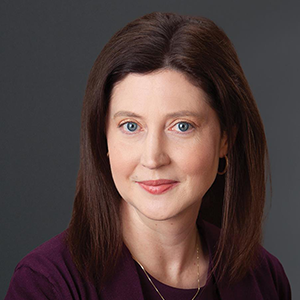Sailing away

Self-consciousness, anxiety, identity crises—these are common issues of adolescence. But Washington Road resident J.R. Roessl had something more to worry about during her teens: being lost at sea.
That’s because when she was 16 in the late ‘60s, her father cast off from San Francisco to travel the world with her whole family in a sailboat he built himself. The crew of their 40-foot boat, Heritage, consisted of J.R. and her two teenage sisters, neither of whom could swim; their mother, the cook; and another sister, age 4. They were captained by a tyrannical father, who took—but never completed—a celestial navigation class and had never been on a long sail before.
The trip is the focus of Roessl’s new memoir, Unmoored: Coming of Age in Troubled Waters. Aboard Heritage, she was forced to develop self-reliance, deal with disparate personalities, and figure out who she was while they sailed south to Central America.
Later, Roessl lived in New York City for 30 years, working as a model and traveling the world. “When I mentioned my teenage years and this sailing trip we took, people would say, ‘Oh my gosh, this is a fantastic story, you should write about it.’”
Roessl’s unusual story began in northern California, where her restless father began building a wooden sailboat, with no previous boatbuilding experience. His dream of sailing the world became reality in 1969, when he sold their possessions and loaded the family onto the Heritage. After several setbacks, they made it under the Golden Gate Bridge and out onto the high seas, learning to sail amid storms, breakdowns, and other challenges as they made their way down the coast.
All the while, she and her sisters had to deal with their dad’s mercurial temperament and her mother’s unwillingness to challenge him while going through their own tempestuous adolescence. While her sisters earned occasional approval from their father, Roessl always felt at cross purposes with him and often longed for a normal life back on land.
She started writing the story as her thesis at New York University when she went back to school 20 years ago for a degree in creative writing. Then in 2019, living in St. Augustine, Florida, she picked it up again. After moving to Mt. Lebanon, confined by COVID-19, she finished the book, then pitched it to an agent, who sold it to a publisher.

“What I finished in St. Augustine was a very, very rough draft. Then when the pandemic happened and we moved here, we couldn’t go anywhere, and I was basically forced to write.”
Her work included getting approval from family members who figure in the story. Most gave her their blessings.
“I didn’t write the story in order to malign anybody or exact revenge,” Roessl said. “The purpose of my story was to show that it was an amazing thing my dad did. He may have been misguided in a lot of ways. But how many people can say that in their lives they dreamed big and realized that dream?”
She had assumed her readership would be drawn from baby boomers, and mostly women, who were able to identify with being a young woman in the late ‘60s and early ‘70s.
“So I was really surprised that men have apparently enjoyed the book as much as women. One man wrote to me and said it was such a relief that I had gone through that and come out OK.

“It’s not as if people identify with the actual story per se of being on a boat. But what they identify with is the family dynamics. Not so much my family dynamics, but it’s allowed them to think about their own.”
Roessl, who is working on a sequel to Unmoored, has a theory about why she didn’t write the story until later in life. “What is interesting about memoir, and this is my personal opinion, is that you need that span of time to mature and grow and basically live life. To acquire the insights you need to look back and understand where you were at that time.”
Roessl, her husband, Peter Wise, and their daughter, Vivien, moved here on the recommendation of her brother-in-law Tony Wise, formerly a Pitt football coach. They visited in 2019, fell in love with Mt. Lebanon, and bought a house soon afterward. They especially appreciate the walkability of the community.
“My daughter walked to the high school!” Roessl said. “My husband gets up every morning at 5:30 a.m., walks for a couple of miles, then stops at Uptown for his coffee.
“Pittsburgh has all the things I want. The entertainment, the great library, the T. My neighbor said, ‘We’re going to make a yinzer out of you yet!’”





